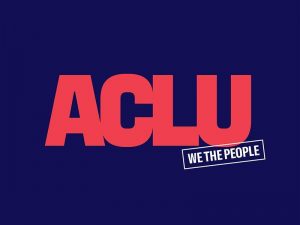
ACLU of Rhode Island cooperating attorneys filed two petitions in R.I. Superior Court today, claiming that the R.I. Department of Corrections (DOC) is unlawfully keeping in prison individuals who were convicted of crimes committed when they were juveniles or very young adults. The legal action claims that the DOC is violating a law enacted by the General Assembly last year that targeted lengthy sentences meted out to young offenders and explicitly sought to help them get early release from those sentences.
The new statute, colloquially known as “Mario’s Law,” provides that “any person sentenced for any offense prior to his or her twenty-second birthday” is eligible for parole after serving twenty years. The law was passed in recognition of the fact that, as the U.S. Supreme Court has noted, “even when they commit terrible crimes,” juveniles lack the culpability of adults due to their immaturity and underdeveloped sense of responsibility. As the ACLU’s petitions note, the new state law was intended to give youthful offenders “an opportunity to demonstrate that they have matured from the person who committed the underlying crimes in their early years.”
Despite this law, the DOC has taken the position that the two petitioners, Pablo Ortega and Joao Neves, who as teenagers were each given life sentences for murder and shorter consecutive sentences for related criminal conduct, aren’t eligible for release after 20 years, but instead must first serve at least 20 years of their life sentence and then get “paroled” to serve additional time for their consecutive sentence before they can be considered for release to the community.
The petitions for post-conviction relief, filed on their behalf by ACLU of Rhode Island cooperating attorneys Lisa Holley, Sonja Deyoe and Lynette Labinger, raise various constitutional arguments and charge that the DOC’s interpretation of the law is “absurd and illogical, contrary to the express terms of the Act and effectively operates to nullify its terms and defeat its purposes.” The petitions note that “release on parole can only mean release … from the physical custody” of the DOC, not “parole to a consecutive sentence.”
The petitions seek Neves and Ortega’s immediate release from custody, subject to conditions placed on their parole by the Parole Board.
In Ortega’s case, the Parole Board unanimously granted him parole in November 2021, but left it up to the DOC to decide whether, under the law, he could be paroled to the community or instead paroled “to his next sentence,” a type of parole that the ACLU petition says makes no sense. As a result, he remains incarcerated despite the Parole Board’s approval for his release to the community. Neves was also granted parole from his life sentence after serving more than 20 years in prison, only to begin serving a consecutive ten-year sentence he was given at the time. The Parole Board claims it has no authority to challenge the DOC’s policy on how parole is calculated.
The DOC’s interpretation of the law affects a number of other youthful offenders, including Mario Monteiro, whose continued incarceration for more than two decades, despite extensive proof of his rehabilitation since his criminal conduct as a juvenile, was an impetus for passage of the new statute aimed at giving youthful offenders a second chance after serving two decades in prison. The ACLU attorneys will be seeking a prompt hearing on the petitions.
The ACLU has repeatedly battled the DOC over a similar issue for adult offenders, which is the result of the agency’s unannounced policy decision a few years ago to retroactively change the way it calculates parole eligibility dates for individuals given consecutive sentences for their crimes who are also serving life sentences.
ACLU cooperating attorney Holley said today: “Although the RI General Assembly has enacted a change to the parole statute allowing youthful offenders to be eligible for parole release in twenty years, and the legislative intent for the change in statute was made abundantly clear, the DOC’s interpretation of parole eligibility for these offenders is flawed and contrary to concepts of restorative justice. To continue to incarcerate individuals who have proven that they are rehabilitated and ready for release to the community does not serve any reasonable public safety or justice purpose.”
Attorney Deyoe added: “When the Legislature enacted ‘Mario’s law’ last year they did so after acknowledging that scientific literature shows that our brains do not fully develop until the age of 25. The law unambiguously states after 20 years in prison a young offender will be eligible for a parole permit if they are not eligible earlier. The DOC’s baseless interpretation of the law allows it to continue to punish an inmate who has already served his time.”
ACLU cooperating attorney Labinger stated: “The General Assembly passed Mario’s Law to give youthful offenders a chance to shorten the time they must serve on lengthy sentences by demonstrating that they can safely return to the community. The law did not relax the high standards they must satisfy before being paroled; it only shortened the time that they can first attempt to prove that they meet them. The Department of Corrections has nullified that legislative decision.”








Comments